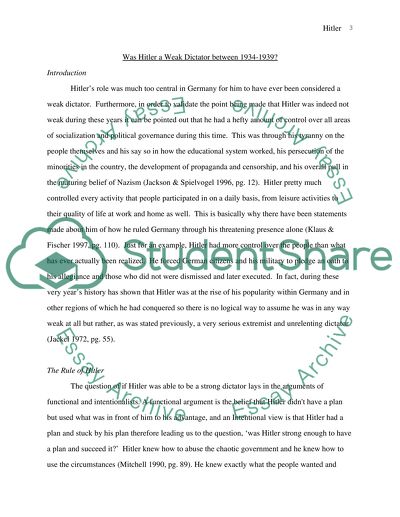Cite this document
(“Was Hitler a Weak Dictator between 1934-1939 Essay”, n.d.)
Retrieved from https://studentshare.org/miscellaneous/1499254-was-hitler-a-weak-dictator-between-1934-1939
Retrieved from https://studentshare.org/miscellaneous/1499254-was-hitler-a-weak-dictator-between-1934-1939
(Was Hitler a Weak Dictator Between 1934-1939 Essay)
https://studentshare.org/miscellaneous/1499254-was-hitler-a-weak-dictator-between-1934-1939.
https://studentshare.org/miscellaneous/1499254-was-hitler-a-weak-dictator-between-1934-1939.
“Was Hitler a Weak Dictator Between 1934-1939 Essay”, n.d. https://studentshare.org/miscellaneous/1499254-was-hitler-a-weak-dictator-between-1934-1939.


